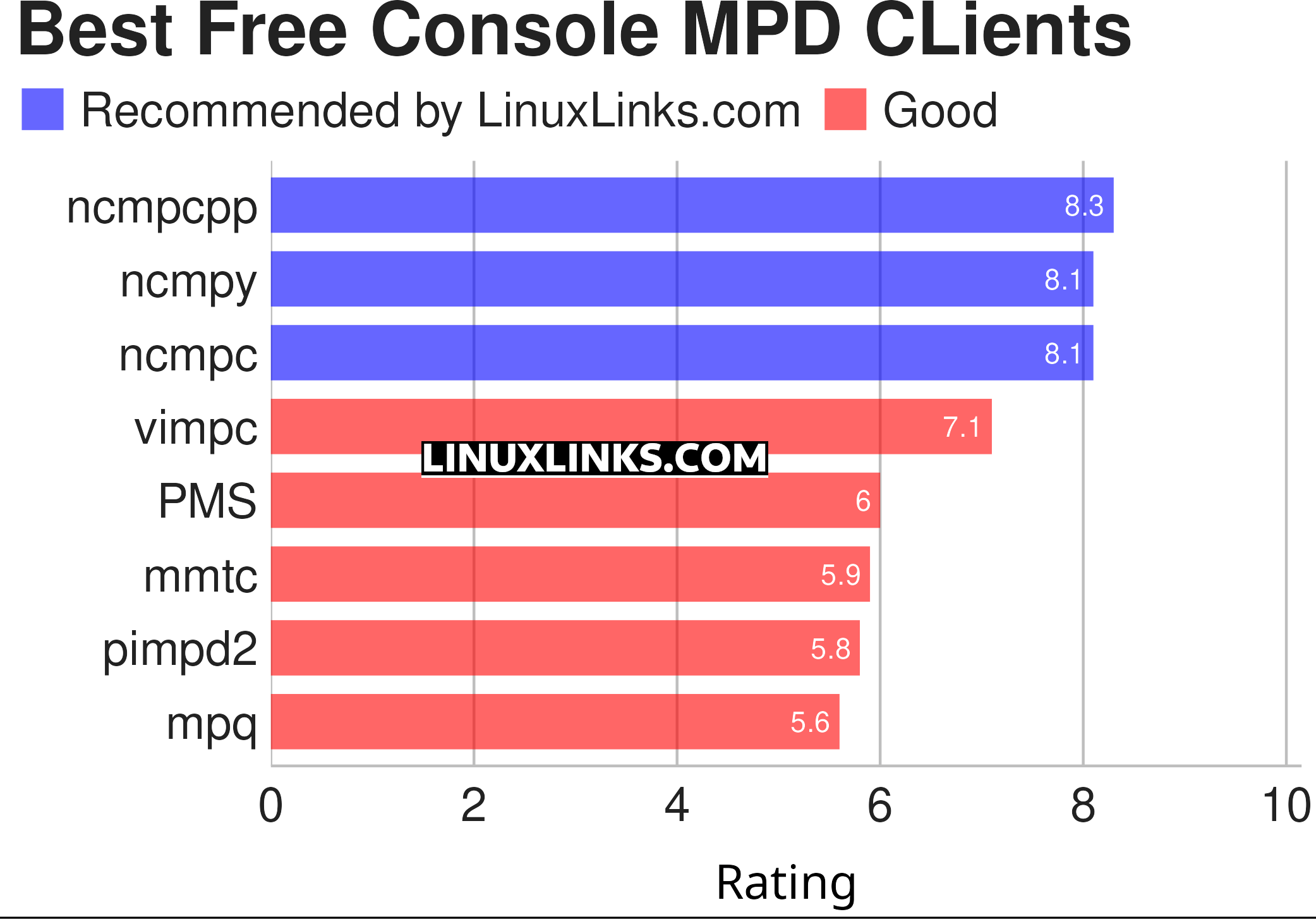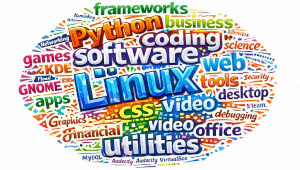MPD is a powerful server-side application for playing music. In a home environment, you can connect an MPD server to a Hi-Fi system, and control the server using a notebook or smartphone. You can, of course, play audio files on remote clients. MPD can be started system-wide or on a per-user basis.
MPD runs in the background playing music from its playlist. Client programs communicate with MPD to manipulate playback, the playlist, and the database.
The client–server model provides advantages over all-inclusive music players. Clients can communicate with the server remotely over an intranet or over the Internet. The server can be a headless computer located anywhere on a network.
There’s graphical clients, console clients and web-based clients.
To provide an insight into the quality of software that is available, we have compiled a list of 8 best console-based MPD clients. Hopefully, there will be something of interest here for anyone who wants to use MPD on the command-line.
Here’s our verdict captured in a legendary LinuxLinks-style ratings chart.

Let’s explore the 8 console MPD clients. For each program we have compiled its own portal page, a full description with an in-depth analysis of its features, together with links to relevant resources.
| Console MPD Clients | |
|---|---|
| ncmpcpp | Featureful and rock solid ncurses based MPD C++ client inspired by ncmpc |
| ncmpy | Curses based client written in Python language |
| ncmpc | Curses based client written in C++ |
| vimpc | vi/vim inspired client for MPD written in C++ |
| PMS | Vim-like console client |
| mmtc | Very minimalistic client written in Rust |
| pimpd2 | Perl-based client |
| mpq | Minimalist viewer and manipulator for MPD written in Go |
This article has been revamped in line with our recent announcement.
 Read our complete collection of recommended free and open source software. Our curated compilation covers all categories of software. Read our complete collection of recommended free and open source software. Our curated compilation covers all categories of software. Spotted a useful open source Linux program not covered on our site? Please let us know by completing this form. The software collection forms part of our series of informative articles for Linux enthusiasts. There are hundreds of in-depth reviews, open source alternatives to proprietary software from large corporations like Google, Microsoft, Apple, Adobe, IBM, Cisco, Oracle, and Autodesk. There are also fun things to try, hardware, free programming books and tutorials, and much more. |


I’m loving ncmpy.